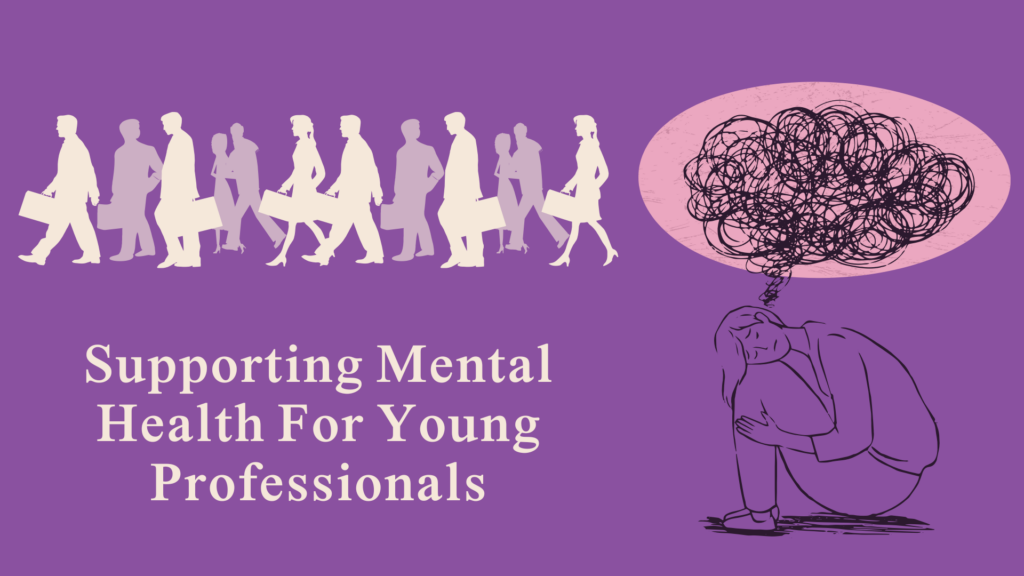In an increasingly fast professional world, the never-before-seen challenges that confront a young employee daily in their work life have long-term effects that ruin mental health and cause imposter syndrome, burnouts, and stress. These need to be brought out, and some ways sought to rectify them with resources.
Understanding Common Mental Health Challenges
Imposter Syndrome
Imposter syndrome is characterized by a persistent sense of self-doubt despite having outward success. A lot of young people tend to ascribe their success to luck rather than their competence or skill, which creates anxiety, and a lower sense of worth and efficacy. This internal conflict can negatively impact their productivity and impede job or career advancement.
Burnout
Burnout is a state of physical, mental, and emotional exhaustion due to chronic stress and overwork. The desire to prove oneself or the fear of their seniors’ disapproval often keeps many young professionals from having a proper work-life balance. This sustained pressure slowly but surely starts to erode the motivation and energy level, diminishing productivity, and eventually inflicts mental and physical damage.
Early Career Stress
Navigating the early stages of a career can be treacherous. From meeting expectations set by their performance to finding a future path, young professionals have a lot to handle. They are frequently subjected to extra stress or anxiety due to fear of failure or making wrong decisions pertaining to their career.
The Role of Mental Health Awareness
Awareness of mental health challenges is a step to address them. The organizations have to create an open and free culture where people feel free to talk about their challenges without any judgment or stigma attached. Building a supportive culture can help normalize the conversation around mental health with your staff and could potentially lead to seeking help when needed.
How EAPs Support Young Professionals
Employee Assistance Programs are one of the major tools in addressing mental health challenges faced by young workers. These programs offer confidential, professional services that help employees balance their lives between personal and professional spheres.
- Personalized Counselling Services
EAPs offer individual sessions with professional counselors who are expert mental health professionals. This would help the employees manage work-related stressors and reduce anxiety through the development of healthy ways of handling stress.
- Stress Management Training
EAPs also arrange workshops and training sessions for the organizations and employees on several other topics including management of stress which could even provide practical tips to the young employees for the maintenance of good mental health. They can help in teaching techniques like time management, learning to be mindful and use of relaxation exercises, etc., that can make a tremendous difference in overall well-being.
- Career Coaching
EAPs can also help young workers focus on their career goals and how best to take their strengths and weaknesses into consideration. That kind of guidance can take a lot of the stress and guesswork out of the career choice process.
- Organizational Mental Health Awareness Campaigns/Workshops
Most EAPs host organizational-level mental health awareness campaigns or workshops. This, through organized activities and distribution of educational materials, creates an environment where seeking help for mental health issues is not stigmatized.
Steps Organizations Can Take
There are some additional steps that organizations can take to proactively support the mental health of young professionals:
- Encourage Open Dialogue: Create a safe space where employees feel free to talk about their challenges without judgment.
- Promote Work-Life Balance: Allowing flexible working hours, taking breaks, and discouraging overworking can prevent burnout.
- Recognize and Reward Achievements: Celebrating small wins can fight imposter syndrome and improve the morale of staff.
- Train Leaders in Empathy: Train managers in recognizing the signs of mental distress and offering appropriate support.
Conclusion
Let us emphasize self-realization, resilience, and an all-around life. Mental health is one basis for personal and professional success; hence, it is important to arm young professionals with the wherewithal and support that will make them succeed.
Organizations have a very important role to play in this journey. They can create a truly fulfilled and productive workforce by promoting mental health awareness and tailored support with initiatives such as EAPs.
Let us prioritize mental well-being and work together to build a future where every young professional can reach their true potential, especially because as they say –
“Empowering the youth is empowering the nation.”




